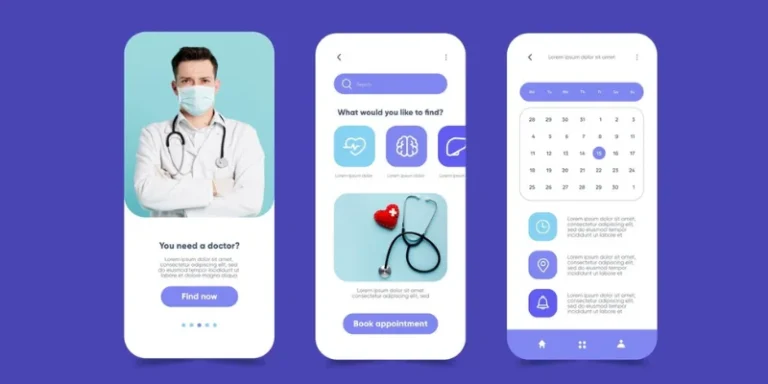Hey, do you realize that the healthcare industry is evolving at a tremendous pace and that digital technology is completely revolutionizing patient care? From enhancing information management to altering decision-making processes, software development has created significant breakthroughs, and these breakthroughs promise to take healthcare services to new heights.
At the core of this transformation are healthcare software development companies composed of experienced technologists who are committed to developing personalized solutions that increase efficiency and value patient results. Their experience in managing the complex connections between technology and healthcare ensures the seamless integration of cutting-edge solutions.
As we explore this article deeper, we will learn the key roles of these companies and discover how their efforts not only enhance operations but also support the highest standards of data security and legal compliance. We will also look at the various challenges encountered by this sector and comprehend the future of this industry. We will also learn how partnering with a renowned healthcare software development company can help you take the healthcare industry to the next level.
Digital Transformation in Healthcare Industry
Digital changes have revolutionized healthcare. According to a study by Deloitte, 92% of healthcare workers and groups have reported changes in their treatment services as a direct result of digital transformation efforts. These modifications cover different aspects of healthcare services, such as streamlined procedures, improved data management practices, and greater patient engagement.
The digital revolution also promises individualized medicine, where treatment plans are adjusted to individual patient data. The introduction of electronic health records (EHRs), virtual platforms, and advanced data analytics tools has allowed healthcare workers to offer more exact, efficient, and effective care. For instance, the ability to collect and examine real-time patient data helps doctors make data-driven choices that lead to better health results.
The Crucial Role of Healthcare Software Developers
At the heart of this changing journey are healthcare software developers. Planning, designing, and building the software solutions to support the complex environments of modern healthcare services is done by these professionals. From building simple user interfaces for telehealth platforms to combining EHR systems with advanced data tools, developers allow healthcare workers to offer smooth, patient-centered care.
Healthcare software developers must have a unique combination of technical skills and subject knowledge. They must understand the details of healthcare processes, medical terms, legal requirements (such as HIPAA compliance), and user experience principles. You must hire software developers who have expertise relevant to the healthcare software industry. By leveraging their skills, developers not only build software that meets the basic needs of healthcare workers but also ensure ease and efficiency in clinical settings.
Challenges in Healthcare Software Development
Developing healthcare software, despite its potential for digital transformation, comes with several notable challenges that developers need to address effectively in order to provide robust solutions.
Interoperability
One of the main difficulties in healthcare software creation is ensuring interoperability among different systems. Healthcare settings typically involve numerous software apps and gadgets that must smoothly connect to share critical patient information. Developers need to stick to interoperability standards such as Fast Healthcare Interoperability Resources (FHIR) and Health Level Seven (HL7) to enable easy data sharing and compatibility across various systems.
Data Security and Privacy
Ensuring data protection and privacy is essential in healthcare software development. Developers must prioritize strong means to protect private patient information from potential hacking risks and breaches. Compliance with laws such as the Health Insurance Portability and Accountability Act (HIPAA) and the General Data Protection Regulation (GDPR) is vital to minimize risks and create trust among healthcare workers and consumers.
Collaboration
Practical cooperation is important throughout the healthcare software development process. Developers work closely with healthcare professionals, IT teams, regulatory experts, and other stakeholders to ensure that software solutions match clinical goals, regulatory requirements, and operating standards. Successful software deployment and acceptance in healthcare environments depend on clear communication and shared understanding of project objectives.
Expanding Skill Sets Beyond Coding
Healthcare software creators today must hold a diverse array of skills beyond traditional coding abilities to stay competitive and effective in the rapidly changing healthcare technology scene.
Technical Skills
In addition to skills in coding languages and software development tools, developers need knowledge in:
- Data Analytics: Ability to examine big datasets to draw insights that can guide healthcare choices and improve patient results.
- Cybersecurity: Knowledge of hacking methods and robust means to protect private medical information from security breaches.
- Cloud Computing: Understanding cloud systems and services to allow flexible and safe storage and handling of healthcare data.
- Artificial Intelligence (AI): Skills in AI algorithms and machine learning models to create AI-driven healthcare apps that can handle tasks, study medical data, and improve detection accuracy.
Emerging Technologies
Healthcare software writers should also be aware of new tools such as:
- Blockchain: Understanding blockchain technology for its promise to improve data security, openness, and interoperability in healthcare systems.
- Telehealth Platforms: Developing skills in making telehealth solutions that enable online talks, patient tracking, and virtual care delivery, thereby improving accessibility and efficiency of healthcare services.
- AI in Healthcare: Leveraging AI to study medical data, predict patient results, and personalize treatment plans, thereby helping healthcare workers provide more effective care.
Innovation and Collaboration
Beyond technical skills, developers should foster a creative attitude and work successfully with healthcare professionals, legal experts, and other partners. This collaboration ensures that software solutions meet clinical needs, comply with legal standards such as HIPAA and GDPR, and are easily integrated into healthcare processes.
These effective skills can enhance healthcare applications and provide a seamless user experience, significantly improving the overall landscape of healthcare and fitness app development.
Collaboration for Success in Healthcare Software Development
Successful healthcare software development hinges on collaborative efforts from diverse teams. Developers, healthcare professionals, IT experts, legal specialists, and end-users must work together smoothly throughout the software creation process to ensure comprehensive alignment with professional practices, regulatory requirements, and healthcare delivery challenges.
Key Principles for Effective Collaboration
When building software to boost efficiency, remember to keep communication open, use feedback loops, focus on user-centred design, and elevate patient care outcomes. Understanding the specific needs and complexities faced by healthcare professionals enables developers to design intuitive interfaces, streamline workflows, and integrate data tools that empower clinicians to make informed decisions and deliver superior care.
Ensuring Fit with Professional Processes and Legal Standards
By developing a collaborative approach, software developers can ensure that their solutions not only meet the relentless demands of healthcare workflows but also comply with legal standards and regulatory frameworks. This joint effort reduces risks and ensures that the software solution enhances rather than slows clinical operations.
Improving Patient Care through Technology
Through continuous collaboration, healthcare software development companies can develop solutions that directly handle healthcare challenges, ultimately improving patient outcomes. By utilizing the expertise of all stakeholders—from developers to end-users—software solutions can be tailored to meet the unique demands of the healthcare environment, creating patient-centric care and continuously improving culture.
Future Opportunities in Healthcare Software Development
Healthcare software development offers substantial possibilities for professionals hoping to make a helpful effect. Some of them are:
Expanding Demand and Growth Prospects
The demand for skilled healthcare software writers is likely to soar as healthcare groups increasingly invest in technology-driven solutions. These efforts hope to simplify processes, lower costs, and eventually improve patient results. Developers focusing on areas such as artificial intelligence (AI), machine learning, telemedicine, and cybersecurity will find themselves in high demand, directly contributing to the future of healthcare innovation.
Broader Responsibilities Beyond Technical Expertise
The job of healthcare software engineers goes beyond technical skills to cover moral factors and social duty. Developers must value patient safety, privacy, and usefulness throughout the creation and execution of healthcare software solutions. Following moral guidelines and legal rules guarantees not only compliance but also helps stakeholders, patients, and medical professionals to have confidence.
Driving Innovation and Enhancing Patient Care
By utilizing their knowledge and adopting joint methods, healthcare software engineers have the chance to change healthcare services. Innovations in software solutions can handle current healthcare issues, equip doctors with valuable insights, and create smooth patient experiences. This constant development toward patient-centric care underscores the important role of coders in shaping the future of healthcare technology.
Conclusion
Healthcare software engineers play an important role in driving the digital transformation of healthcare. Their ability to develop, cooperate, and apply cutting-edge solutions allows healthcare providers to offer more personalized, efficient, and effective care. As technology continues to change and reshape the healthcare scene, developers will stay at the forefront of building robust healthcare software development solutions that improve patient results, ease processes, and enhance total healthcare delivery.
By accepting diverse teamwork, staying aware of technological breakthroughs, and adhering to governmental standards, healthcare software writers can have a profound effect on the future of healthcare. As we look towards the future, the possibilities for coders to create and change the healthcare industry are endless, offering a fulfilling and effective job path committed to better healthcare service and patient care worldwide.




